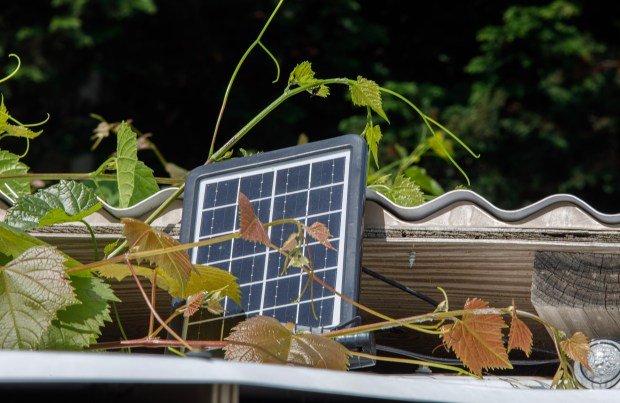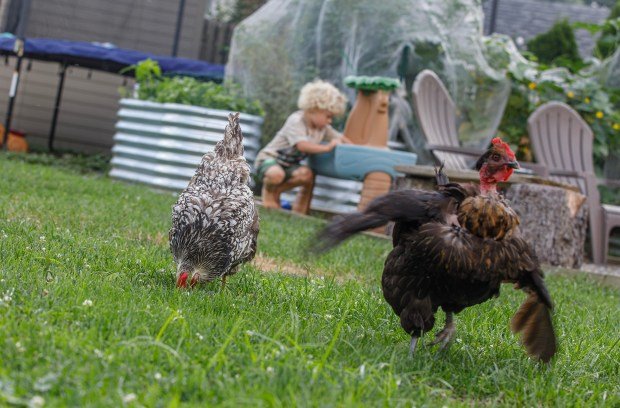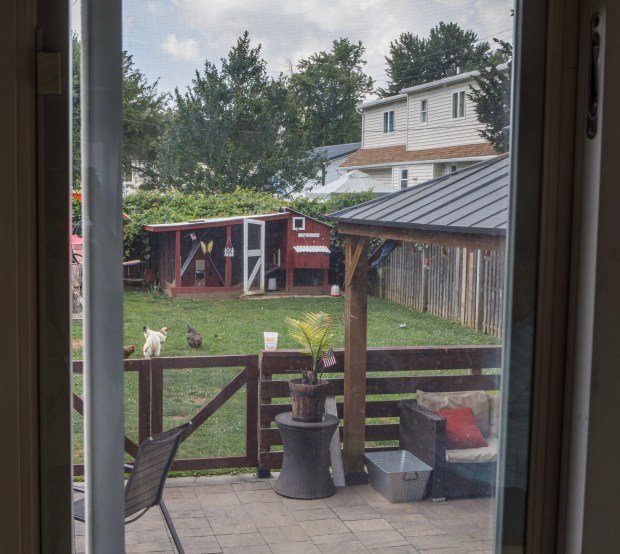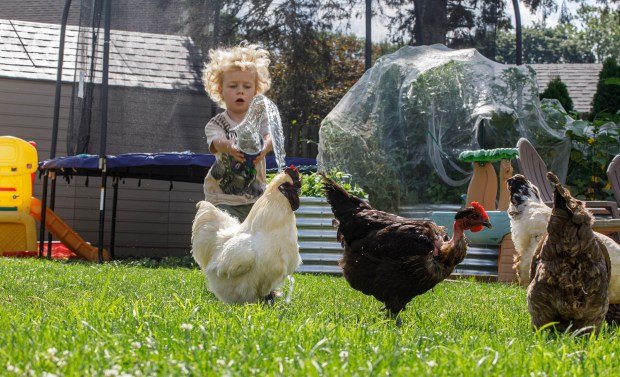Have you ever considered raising chickens in your own backyard?

This image is property of www.mcall.com.
The Backyard Chicken Trend
Raising chickens in urban and suburban settings has gained popularity over the years. Many find joy in having fresh eggs, and chickens can also serve as delightful pets. However, with this trend comes a series of challenges, especially regarding local regulations. Forks Township in Lehigh Valley is a prime example of how one person’s passion can spark a community dialogue about local ordinances and animal husbandry.
Meet Karolina Fedoryszak
Let’s talk about Karolina Fedoryszak, a resident of Forks Township. In early 2019, she embarked on her journey to raise chickens in her backyard. Like many others, she was drawn by the appeal of fresh eggs, and the companionship that these birds could provide. However, what she didn’t foresee was the struggle against local regulations regarding keeping chickens as pets.

This image is property of www.mcall.com.
The Zoning Controversy
Karolina received what she believed to be verbal permission from a previous zoning officer in 2019 to keep chickens in her backyard. This gave her the confidence to set up a cozy little chicken coop for her nine chickens and one rooster. Sadly, this optimism was short-lived. As it turns out, there were restrictions in place that explicitly discouraged keeping chickens within her township.
Local Regulations
Understanding local regulations is crucial for any budding backyard chicken enthusiast. In many areas, ordinances define what animals can be kept as pets, and in the case of Forks Township, chickens fell into a grey area. With the township claiming that backyard chickens were not allowed, Karolina found herself in a predicament.
You might wonder, how can a resident navigate these regulations? Awareness is key. It’s essential to familiarize yourself with local animal ordinances before jumping into chicken-keeping.
The Battle for Backyard Chickens
Karolina wasn’t ready to give up. She believed she had a valid argument on her side: the verbal permission she had received from the former zoning officer suggested that her desire to raise chickens was not entirely baseless. Armed with this notion, she confronted the township.
A Meeting with Township Officials
The confrontation didn’t end in disaster. After a meeting with township officials, a temporary agreement was reached. Karolina could keep her beloved nine chickens and one rooster, all while the township reviewed the existing regulations regarding backyard chickens. This outcome was a relief for her, but it opened the door to larger conversations about the township’s policies.
You can imagine the sense of satisfaction Karolina felt when she realized that she had sparked a discussion that could benefit not only her but the community as well.

This image is property of www.mcall.com.
Permit Issues
While she had some leeway to keep her chickens temporarily, there’s no doubt this situation brought about some complications. One of the pivotal points in Karolina’s case was the fact that she did not have a proper permit for her chicken coop. Permit challenges are not uncommon for those who raise livestock in urban areas.
Understanding Permits
Before you decide to build a coop, knowing the necessary permits can save you lots of stress. You may need permissions related to zoning, building specifications, and health regulations. Each area can vary significantly in what it requires, so checking with local officials can help you navigate this intricate process.
In Forks Township, the absence of a permit meant that maintainers of backyards were often left vulnerable to citations, something Karolina eventually faced.
Community Support
Interestingly enough, Karolina wasn’t alone in her challenges. Many residents in Forks Township shared their stories of having received verbal or written permissions to keep chickens. This community backing demonstrated that interest in backyard chickens wasn’t limited to Karolina’s experience.
Rallying Together
The rise in community support can pave the way for more comprehensive changes in regulations. When numerous voices speak up, they often capture the attention of local officials. If you find yourself part of a community where chicken keeping is contested, gathering signatures, and sharing experiences could significantly influence future decisions about local ordinances.
Residents in Forks Township began advocating for clearer guidelines that would permit backyard chickens and address concerns related to noise, sanitation, and the responsibility that comes with raising livestock.

This image is property of www.mcall.com.
Future Plans for Forks Township
The engagement from Karolina and other residents prompted the township to review its ordinances related to keeping chickens. This scrutiny suggests a proactive approach by local officials in considering how to adapt to the growing interest in backyard poultry.
A Safer Environment for Chickens and Residents
As debates over regulations continue, the township is tasked with ensuring the efforts to keep chickens align with community health and safety. The idea is not to ban backyard chickens outright but to establish guidelines that create a harmonious balance between animal husbandry and residential living.
The proposals might include specifying the number of chickens allowed, requirements for coops, and safety measures to minimize any disturbances in the neighborhood.
The Ripple Effect: What’s Next?
As Forks Township continues to review regulations, the outcome of Karolina Fedoryszak’s fight may lead to significant changes not just for her but for other residents with similar aspirations. Small victories often lead to larger ones, highlighting the importance of dialogue between residents and local governance.
Staying Informed
Staying informed about ongoing discussions is vital for both newcomers and existing chicken enthusiasts. You might want to attend township meetings to voice concerns or share insights. Engaging with neighbors can also create a supportive community ambiance where individuals help one another navigate regulations.

This image is property of www.mcall.com.
A Broader Look at Backyard Chickens
While Karolina’s story is centered on Forks Township, it’s important to recognize that the battle for backyard chickens is a movement seen in numerous areas across the country. Localities often clash with residents eager to embrace more sustainable living practices.
Changing Perceptions
Changing perceptions around what it means to keep backyard chickens could potentially pave the way for more leniency in rules and regulations. This shift in perspective might focus on the many benefits of having chickens, such as:
- Fresh Organic Eggs: Nothing tastes quite like a freshly laid egg.
- Pest Control: Chickens love to munch on insects and pests in your yard.
- Fertilizer: Chicken waste can be a great addition to compost.
- Education: Keeping chickens can provide a learning experience for children and adults alike.
When residents and officials recognize these benefits, they may be more inclined to create supportive regulations. You have the power to be part of that dialogue and advocate for the potential of urban and suburban chicken-keeping.
Conclusion
Navigating local regulations surrounding backyard chickens can be challenging, as demonstrated by Karolina Fedoryszak’s experiences in Forks Township. Her fight represents not only her personal struggle but also a community’s push for change.
By understanding local ordinances, gathering community support, and engaging in discussions with local officials, you too can contribute to the dialogue surrounding backyard chickens. Whether it’s to enjoy fresh eggs, improve biodiversity, or enhance community sustainability, there’s a growing movement advocating for the right to raise chickens in backyards everywhere.
As Forks Township revisits its ordinances, things may very well be looking up for future chicken owners, thanks to the bold fight led by individuals like you. The push for clearer, supportive regulations is essential for both residents and their feathered friends, preserving the joy of backyard chickens for years to come. Always remember: every small step towards change can lead to bigger milestones, whether it’s in your own backyard or the community at large.



